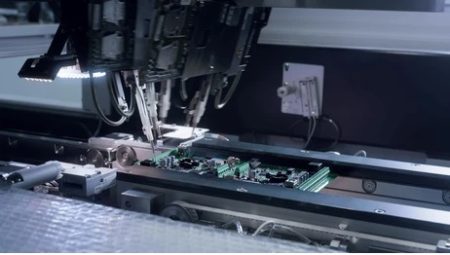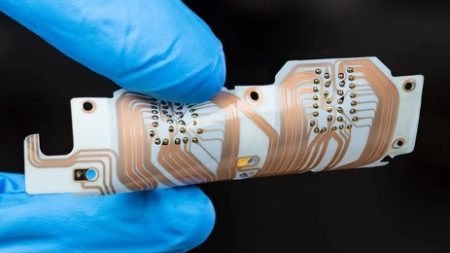- +86-755-23012705
- Building 3, Jinfeng Industrial Park, Fuyong Street, Baoan District, Shenzhen ,China
- [email protected]
In the highly competitive world of electronics manufacturing, companies are always looking for ways to cut production costs without compromising on quality. Printed Circuit Board Assembly (PCBA) is at the heart of most electronic devices, and ensuring high quality and reliability while keeping costs low is a significant challenge. However, with the right strategies, it’s possible to achieve both goals. In this blog, we will explore several key approaches that can help reduce PCBA production costs while maintaining or even improving quality and reliability.
One of the most effective ways to reduce costs in PCBA production is to start with a well-designed PCB (Printed Circuit Board). The design phase is critical, as design choices directly impact manufacturing costs and product quality.
Simplify the Design: A simpler PCB design can reduce the number of components, layers, and complexity, which in turn lowers both material and labor costs. Reducing unnecessary layers and components can streamline the manufacturing process and lower production costs without sacrificing functionality.
Component Selection: Opting for standardized, off-the-shelf components rather than custom or specialized parts can lower procurement costs and shorten lead times. Standardized components are also easier to source, which reduces the risk of delays and inventory management issues.
Design for Manufacturability (DFM): DFM is a design philosophy that focuses on creating PCBs that are easy and cost-effective to assemble. By considering the manufacturing process during the design stage, you can avoid complex features that increase assembly time and costs. DFM helps identify potential problems early, reducing the need for costly redesigns.

Automation plays a crucial role in reducing labor costs, improving consistency, and increasing the speed of production. With the right equipment, PCBA manufacturers can significantly reduce production costs while maintaining high quality.
Surface Mount Technology (SMT): SMT machines, such as pick-and-place machines, can automate the process of placing components on the PCB. These machines are fast, accurate, and capable of handling a wide range of components, which increases throughput while reducing human error.
Reflow Soldering: Reflow soldering is a critical step in PCBA production. Automated reflow soldering ovens ensure that the soldering process is uniform and precise, which not only reduces labor costs but also minimizes the risk of soldering defects like cold joints or bridges that can affect the quality of the final product.
Automated Inspection Systems (AOI): Automated Optical Inspection (AOI) systems can detect defects during the assembly process, ensuring that quality issues are addressed early. Early detection of problems, such as misplaced components or soldering defects, helps reduce rework and scrap rates, which in turn lowers overall production costs.
Lean manufacturing principles focus on eliminating waste and improving operational efficiency. By adopting lean practices in PCBA production, companies can reduce costs while improving the overall production process.
Just-In-Time (JIT) Inventory: JIT inventory systems ensure that components are delivered to the production line exactly when they are needed, reducing the need for large stockpiles and minimizing storage costs. JIT helps manufacturers avoid overstocking, which can tie up capital and increase the risk of component obsolescence.
Value Stream Mapping: By mapping out the entire production process and identifying bottlenecks or inefficiencies, manufacturers can streamline operations. Reducing wait times, improving material flow, and eliminating unnecessary steps can lower costs and reduce the time to market.
Continuous Improvement (Kaizen): Kaizen focuses on making small, incremental improvements to processes over time. This approach helps manufacturers continually refine their production methods, resulting in cost reductions and improved quality without large, disruptive changes.
High-quality PCBA is critical for ensuring product reliability, but poor quality control can lead to increased rework and scrap, driving up costs. Effective quality management is essential for both reducing costs and maintaining product reliability.
In-Circuit Testing (ICT): In-circuit testing allows manufacturers to check the functionality of a PCBA during the production process. By identifying defective boards early, ICT can prevent costly rework or scrap later on. It also ensures that only functional products are shipped to customers, improving overall product reliability.
Automated Optical Inspection (AOI): AOI systems use cameras to inspect PCBA for defects such as misplaced components, poor solder joints, or missing parts. Implementing AOI early in the process can catch defects before they become costly problems, reducing the need for manual inspection and rework.
Functional Testing: After assembly, functional testing verifies that the PCBA works as intended. Catching defects at this stage ensures that only fully functional units are delivered to customers, preventing costly returns and warranty claims.

Reducing material waste is another effective strategy for lowering production costs while maintaining quality. By optimizing the use of raw materials and improving efficiency in the production process, manufacturers can save significantly.
Efficient Component Placement: Proper component placement on the PCB can help minimize the amount of unused or wasted board space. Maximizing the use of the board area not only reduces the cost of materials but also reduces the time needed for assembly.
Optimize Soldering Processes: Overuse of solder or improper soldering techniques can lead to waste and defective boards. By ensuring that the soldering process is precise and controlled, manufacturers can reduce excess soldering material and improve the overall quality of the final product.
Rework and Reuse: When defects are found, rather than discarding the entire PCBA, it may be possible to rework certain sections of the board or reuse certain components. Implementing rework stations and providing staff with the proper training can reduce the amount of scrap material and lower production costs.
Employee skill and expertise are essential for maintaining high quality while reducing costs. By investing in ongoing training and development, manufacturers can ensure that their workforce is proficient in the latest technologies and production techniques.
Cross-Training: Cross-training employees across various production tasks allows for more flexible staffing, which reduces downtime and ensures that workers can quickly adapt to changes in production requirements.
Process Improvement Training: Training employees in lean manufacturing, Six Sigma, and other process improvement methodologies enables them to identify inefficiencies and suggest ways to reduce waste and improve quality.

Reducing production costs while maintaining high quality and reliability in PCBA manufacturing is possible with a strategic approach. By optimizing the PCB design, leveraging automation, implementing lean manufacturing practices, focusing on quality control, minimizing material waste, and investing in employee training, manufacturers can significantly reduce costs without compromising on the final product. Ultimately, a focus on efficiency and continuous improvement helps companies stay competitive, deliver reliable products, and maximize profitability in a challenging and fast-paced market.
Take Your Projects to New Heights with XPCB Limited
XPCB Limited offers top-notch PCB manufacturing, quick-turnaround prototyping, and turnkey PCBA services designed to make your projects shine. Count on us to bring your ideas to life with efficiency and quality. Your success matters to us, and we’re here to make your innovation journey smooth and rewarding.






XPCB Limited is a premium PCB & PCBA manufacturer based in China.
We specialize in multilayer flexible circuits, rigid-flex PCB, HDI PCB, and Rogers PCB.
Quick-turn PCB prototyping is our specialty. Demanding project is our advantage.
Tel : +86-136-3163-3671
Fax : +86-755-2301 2705
Email : [email protected]
© 2024 - XPCB Limited All Right Reserve
